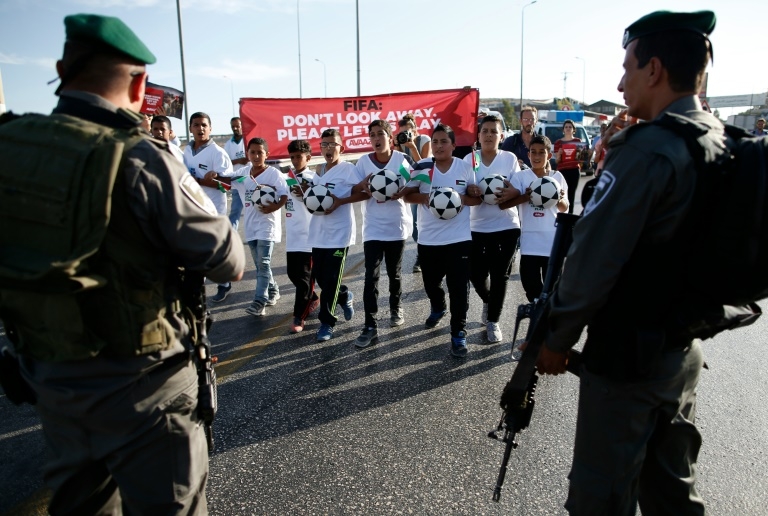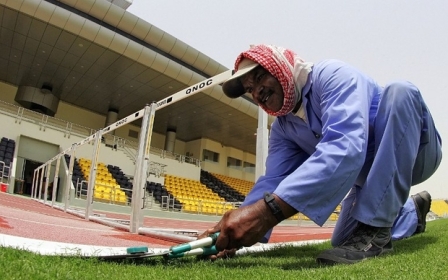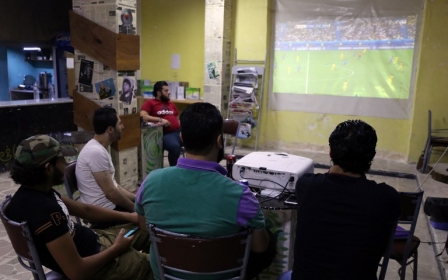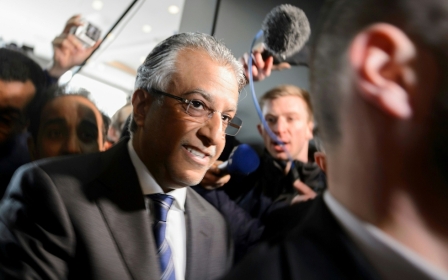With UN backing, FIFA must strike now to stand up to Israeli settlement clubs

This Tuesday, the resolution on Israeli settlements adopted by United Nations Security Council just before Christmas will undergo its first significant implementation test in an unlikely venue: the council of FIFA meeting in Zurich.
FIFA can rightly claim that its hands are tied by its own statutes and the UN and thus it has no choice but to act against the settlement clubs
The world football federation will address – and possibly decide on – the issue of six Israeli football clubs based in the settlements, which has been plaguing the FIFA leadership for several years now.
FIFA’s statutes say that one national football association cannot play on the territory of another association without the latter’s consent. Football clubs playing in the Israeli competition but located in the occupied Palestinian territory falling under the Palestinian football association violate this rule.
FIFA should therefore stop recognising football matches played by the settlement clubs, thus obliging their exclusion from the Israeli league.
Based on the same rule, Russia was banned from incorporating football clubs in Crimea in the Russian league after its annexation of the peninsula in 2014.
However, FIFA president Gianni Infantino has so far hesitated to apply the same standard in the case of the Israeli settlement clubs. Despite his commitment at the FIFA Congress last May to find a solution to the issue by October, the issue has been postponed and comes back on the agenda on Tuesday.
No room for hesitation
The UN resolution 2334, adopted in the meantime, leaves no room for further hesitation. It makes clear that the settlements are located in occupied Palestinian territory, outside of Israel. It vows not to recognise any changes to pre-1967 lines separating the occupied territory from Israel, other than those agreed mutually in a potential future peace agreement.
If there was still any lack of clarity among FIFA officials as to whose territory the settlements are based in and where the border runs, the resolution provides an unequivocal answer.
Incidentally, when the Palestinians raised the question of the settlement clubs at the FIFA Congress in 2015, the Israeli representative “insisted that the issue of territory should be decided by the United Nations” because “FIFA was not a forum for politics”, according to the minutes. Indeed, this is exactly what the UN has now done.
In addition to the territorial issue, the resolution reaffirms that the establishment of the settlements has “no legal validity” and constitutes a “flagrant violation” under international law.
Given that the football clubs and fields are established as part of those settlements, this should make them doubly ineligible for FIFA compared to the football clubs in Crimea that are, in themselves, okay under international law.
'Put politics aside'
None of these positions are new. But the resolution is the clearest reaffirmation of the international consensus on the Israeli settlements by the Security Council – the most powerful UN institution - in 36 years.
FIFA only needs to follow the international consensus as reaffirmed in the resolution and finally cut the hot potato that has landed on its table
Fourteen votes for, none against and one abstention by the US is a stronger show of unity than on the UN resolution against the annexation of Crimea in 2014, where there were 100 votes for, 11 against and 58 abstentions in the larger and less powerful UN General Assembly. President-elect Trump has tweeted against the resolution on settlements but he will not be able to unmake or change it.
Infantino has said he wants to “put politics aside and talk football”. Resolution 2334 provides a perfect opportunity for FIFA to do so because the politics has just been handled by the Security Council. FIFA only needs to follow the international consensus as reaffirmed in the resolution and finally cut the hot potato that has landed on its table.
FIFA can rightly claim that its hands are tied by its own statutes and the UN and thus it has no choice but to act against the settlement clubs. On the contrary, continuing to accept the matches played by settlement clubs despite the resolution would be a deeply political act, out-of-sync with the judgment of the international community.
Delaying the decision yet again could be a serious blow to Infantino’s credibility within FIFA given his commitments to resolve the issue. FIFA representatives have repeatedly acknowledged that they are working “in extra time”.
If they finally enforce their rules now, the outgoing Obama administration is almost certain not to object. Postponing the decision into Trump’s term in the White House could on the other hand increase the political commotion that FIFA wants to avoid.
- Martin Konecny runs the European Middle East Project (EuMEP), a Brussels-based NGO
The views expressed in this article belong to the author and do not necessarily reflect the editorial policy of Middle East Eye.
Photograph: Young Palestinians try to enter the Israeli settlement of Maale Adumim to play football, but are turned away by Israeli security forces in October 2016 (AFP)
New MEE newsletter: Jerusalem Dispatch
Sign up to get the latest insights and analysis on Israel-Palestine, alongside Turkey Unpacked and other MEE newsletters
Middle East Eye delivers independent and unrivalled coverage and analysis of the Middle East, North Africa and beyond. To learn more about republishing this content and the associated fees, please fill out this form. More about MEE can be found here.





